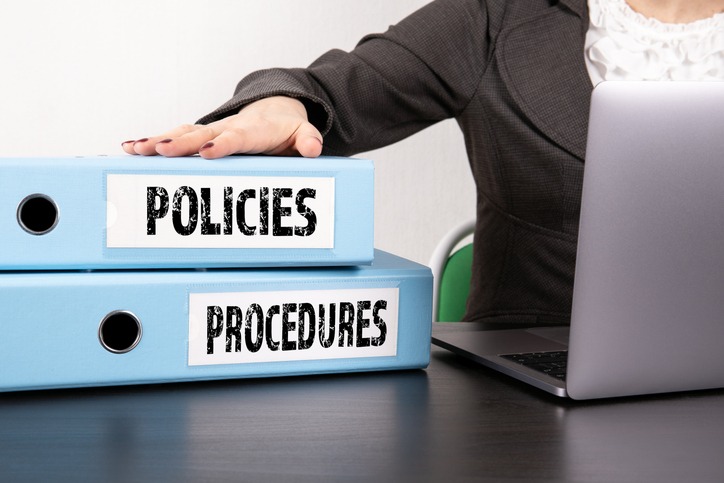Serving the Dallas Fort Worth Area & Nationwide

Document Retention Guidelines – When to Shred
Managing documents effectively is essential for both individuals and businesses. The importance of document retention guidelines lies in their ability to balance compliance with legal requirements and the need to protect sensitive information. Whether for personal, financial, or business purposes, understanding when to keep, store, or shred documents can help avoid risks like identity theft or data breaches while maintaining organized records.
Why Document Retention Matters
The primary goal of document retention is to ensure compliance with legal and tax obligations while safeguarding sensitive information. Adhering to document retention and destruction guidelines prevents chaos and protects against fraud.
- Ensuring Compliance and Avoiding Legal Risks: For businesses and individuals, retaining documents is often a legal requirement. Tax returns must be kept for at least seven years to meet IRS regulations. Businesses must also adhere to document retention guidelines to comply with financial reporting standards and labor laws to avoid penalties or disputes.
- Protecting Against Identity Theft: Improperly stored or discarded documents can invite identity thieves. Retaining sensitive documents for too long or disposing of them carelessly increases the risk of unauthorized access. Shredding unnecessary documents is crucial for protecting personal information.
- Keeping Records Organized: An overabundance of outdated records can lead to clutter, making it difficult to find important information when needed. Following personal document retention guidelines ensures efficiency and reduces the time spent sorting through unnecessary papers.
How Long Should You Keep Different Types of Documents?
Understanding the appropriate retention periods for various documents is vital to staying compliant and avoiding unnecessary risks. Always consult legal or financial advisors to determine specific timelines.
- Personal Documents: Certain personal documents should be kept permanently, as they may be needed throughout your life:
- Birth Certificates and Passports: Retain these permanently.
- Social Security Cards: Keep permanently but securely stored.
- Financial Records: For document retention guidelines for individuals, financial records generally require shorter retention periods:
- Bank Statements: Retain for one year unless required for tax or legal purposes.
- Tax Returns: Keep for at least three years, up to seven years, or more if you claim capital losses or bad debt on your returns. In cases of potential audits, a three-year record usually provides sufficient coverage.
- Utility Bills: Retain for one year unless needed for proof of payment.
- Legal and Property Documents: Certain documents should also be kept indefinitely or for as long as they are relevant:
- Property Deeds and Titles: Retain permanently.
- Wills and Trusts: Keep permanently, ensuring updates are dated.
- Contracts: Most people should retain contracts until the contract period ends or disputes are resolved, but businesses should retain these documents for up to six years.
- Business Records: Business document retention guidelines depend on industry regulations and operational needs:
- Payroll Records: Retain for at least three years, though some jurisdictions require longer periods.
- Invoices and Expense Reports: Retain for at least three years.
- Corporate Tax Returns: Keep for a minimum of seven years, aligning with audit risks.
The Risks of Storing Documents Beyond Their Retention Period
Retaining documents for longer than necessary can pose significant risks to both individuals and businesses. Understanding these risks underscores the importance of adhering to document retention and destruction guidelines.
- Data Breaches: Every document containing sensitive information represents a potential vulnerability. Storing documents unnecessarily increases the chances of breaches, particularly if security measures are outdated. Digital and physical records alike are at risk of falling into the wrong hands if not properly disposed of.
- Clutter and Disorganization: A growing pile of unnecessary documents can lead to inefficiency. Important papers may get misplaced, and finding critical information becomes a time-consuming task. Regular purging ensures only relevant documents remain accessible.
- Legal and Financial Risks: Outdated or incorrect documents can create confusion during audits or disputes. Retaining outdated information may also cause businesses to reference inaccurate data, complicating decision-making processes or compliance efforts.
When to Shred Documents and Why It’s Crucial
Recognizing the right time to shred documents is key to protecting sensitive information and staying organized.
Key Indicators for Shredding
Certain situations indicate that a document is ready for shredding:
- Retention Periods Have Expired: For instance, tax records older than three to seven years, depending on your tax return details, or utility bills older than one year can be shredded.
- Documents Are Outdated: Examples include expired credit cards or replaced insurance policies.
- Duplicate or Redundant Information: Shred old versions once updated versions are secured.
Why Shredding Is Essential
Shredding isn’t just about decluttering; it’s a crucial step in safeguarding sensitive data:
- Prevent Unauthorized Access: Proper shredding ensures confidential information cannot be reconstructed.
- Protect Against Identity Theft: Financial and personal information destroyed through shredding minimizes theft risks.
- Ensure Compliance: Shredding obsolete documents demonstrates adherence to privacy regulations, such as HIPAA for healthcare businesses.
Tips for Organizing and Storing Documents Properly
A well-organized system for storing and managing documents streamlines retention and destruction processes.
- Categorize Documents: Sort documents into categories such as personal, financial, legal, and business. This helps identify what is necessary to retain and what can be disposed of.
- Set Retention Periods: Label files with expiration dates or “retain until” notes. This method simplifies future reviews and ensures adherence to household document retention guidelines.
- Use Secure Storage
- Physical Documents: Store critical papers in fireproof safes.
- Digital Records: Securely back up scanned copies using encrypted storage methods.
Why You Should Use Professional Shredding Services
For many, professional shredding services offer an effective solution to managing large volumes of sensitive documents.
Advantages of Professional Shredding
Professional shredding services provide several benefits over at-home disposal:
- Efficiency: They can handle substantial quantities quickly.
- Security: Certified shredding ensures the destruction of sensitive information.
- Convenience: Mobile shredding or secure drop-off services eliminate the need for personal equipment.
Securely Dispose of Unnecessary Documents with Secure On-Site Shredding
Managing your records efficiently starts with understanding document retention guidelines and knowing when to shred. When it’s time to securely dispose of outdated files, trust Secure On-Site Shredding, serving the Dallas-Fort Worth metroplex, to provide expert shredding services tailored to your needs. Our on-site shredding solutions ensure your sensitive information is destroyed responsibly, with certifications from NAID and compliance with all applicable regulations. Protect your personal and business records by taking proactive steps today—contact us to schedule your shredding service and ensure the safe, efficient management of your documents.





